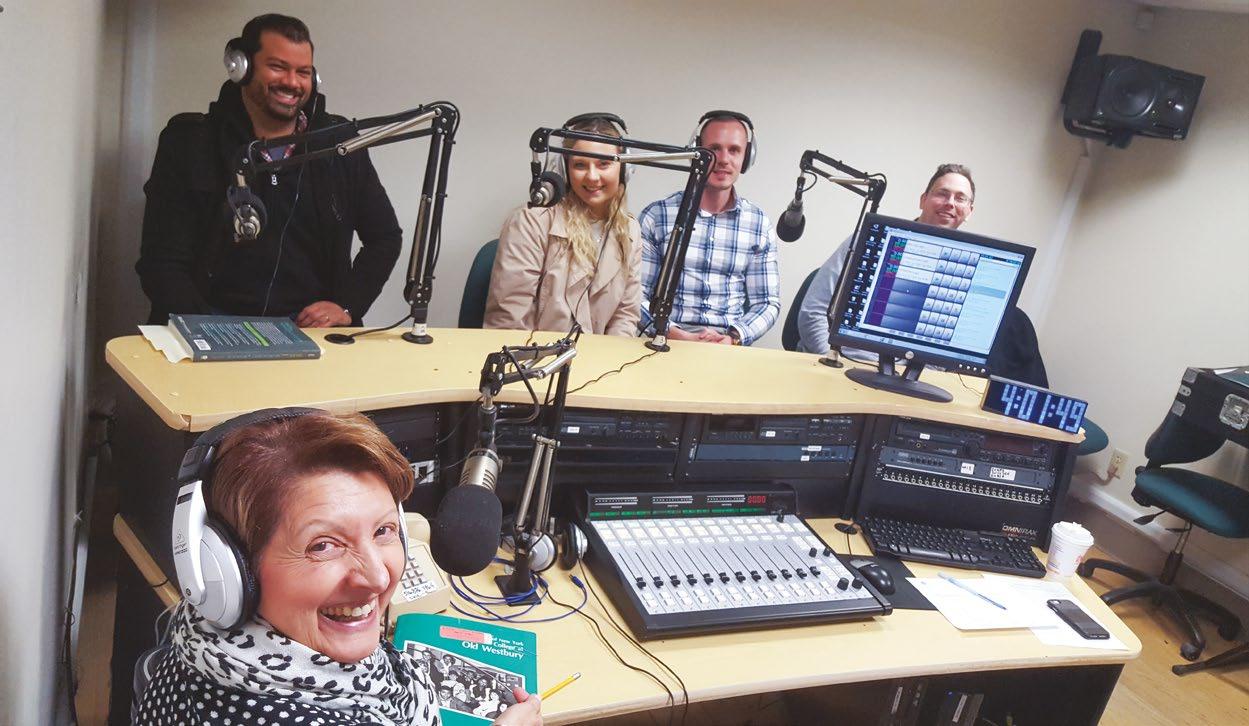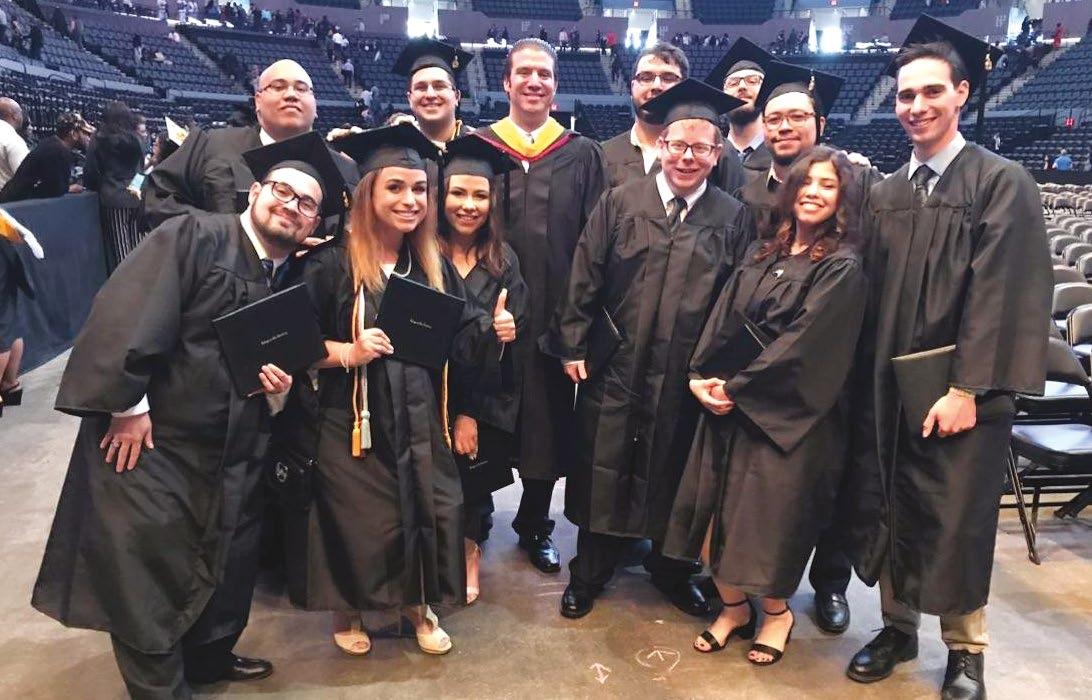
2 minute read
College radio is not a right, it’s a privilege
Writer Joe Manfredi
Station Manager
Old Westbury Web Radio
College radio is not a right, it’s a privilege
An educator and station manager speaks up for the medium
This is one in a series of articles and commentaries about the state of college radio.
Above Right
Blanca Schneider (seated), Dr. Lorenz Neuwirth, Jessica Wallace, Keith Scott and Chris Callahan
Below
Commencement, 2018. Front: Joshua Richter, Michelle Weinfurt, Christine Mustazza, Joshaua Butensky and Arielle Mancebo. Rear: Jonathan Ramos, Michael DeRosa, Joe Manfredi, Andrew Thoma, Michael Gallopini, Rene Canales and James Bacchioni.
I
f only a venue existed where students could explore their creative curiosity while developing skills in leadership, digital media, journalism, marketing, public speaking, IT, engineering …
Oh wait.
At a time when sales of college radio stations are on the rise and more institutions migrate their broadcast outlets from towers to the internet or simply drop them, I say not so fast.
College radio stations matter. Managed properly, they are assets to their institutions — places where students can begin a career; be taught to act in the interest, convenience and necessity of the public; and learn the value of free speech, democracy and storytelling.
Stations can foster personal growth and understanding by bringing students into contact with others of varied experience and disciplines. They can provide a platform for constructive, meaningful conversation while exploring a variety of topics.
Stations can teach responsibility, ethics and values, especially when their leadership seeks to create inclusive, safe and fun learning experiences.
Many stations are student-operated. These are appliedlearning, service-based academic spaces where young people can engage in self-discovery while developing communities and creating lifelong relationships. It’s a context where students, faculty, staff, and community volunteers ideally work as one.
Radio’s minor league
College radio still serves as an important source of broadcast industry talent.
If news is on the program grid, students may be executing local and regional coverage, political interviews, campus news and events, community affairs and educational programming, and perhaps live audio and video webcasting from real pressers.
For helmet heads, court crashers and field fans, college radio may provide the opportunity to create live audio (and video) content including play-by-play, color and field reporting. Students may interview athletes, coaches and sports professionals.
If music is on the menu, DJs can flourish. College radio also is responsible for uncovering new and independent artists and continues to help the careers of musicians and their fan bases. These artists participate in interviews, studio performances, station branding, and ticket and merchandise giveaways.
Sound hounds who love computer screens, software and splicing can learn all phases of production and exercise their creativity as they gain proficiency.
Those with an interest in public relations or marketing can explore branding and social media, create narratives, acquire new listeners, engage the audience, identify demographics and represent the station and the college to the public. Some







